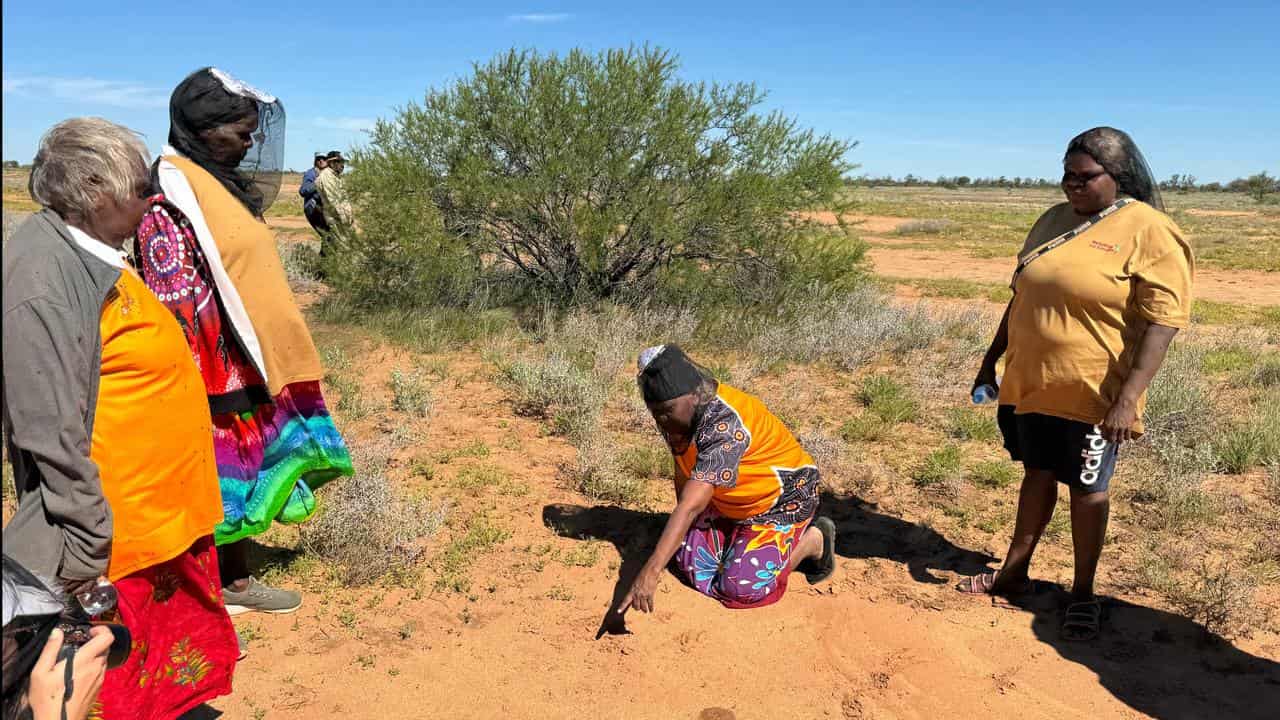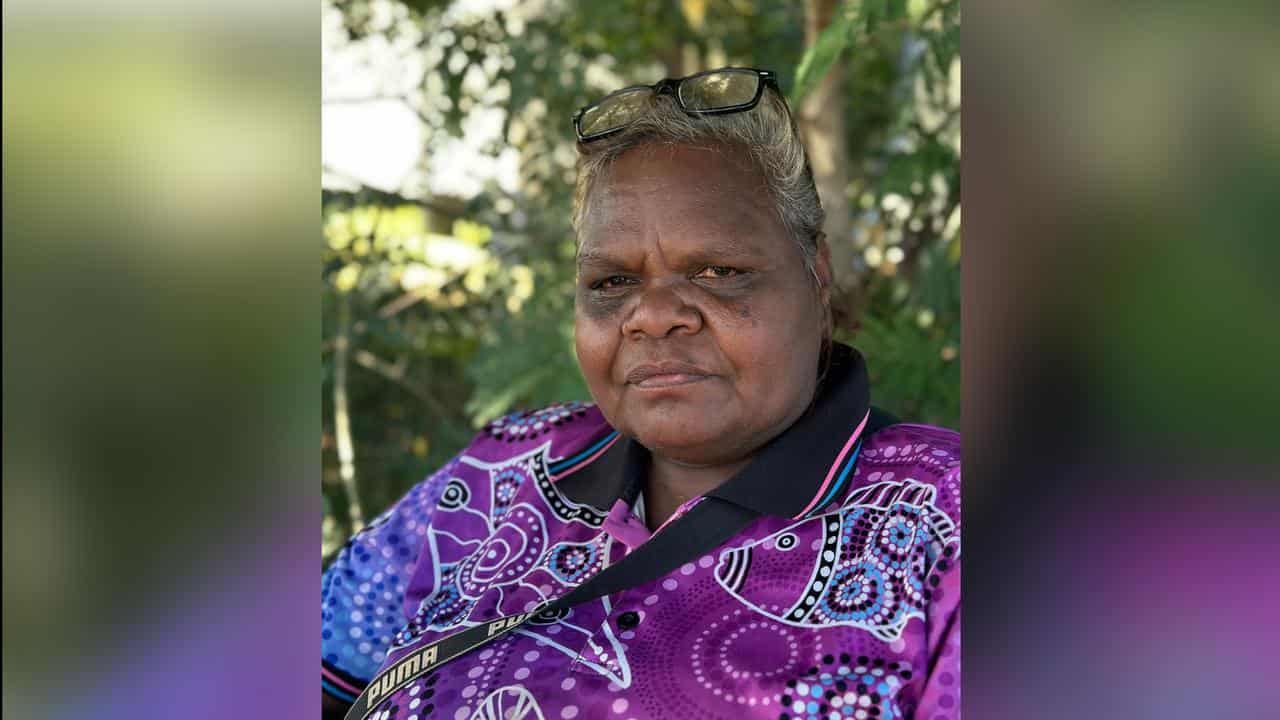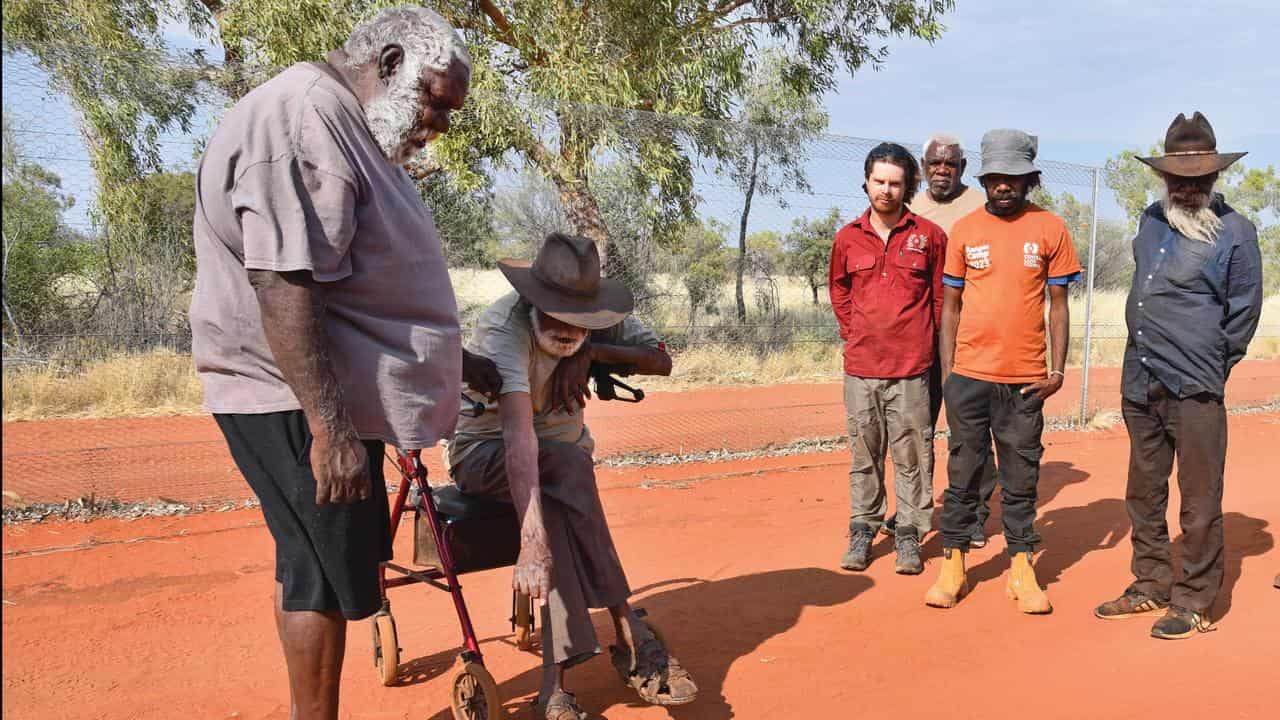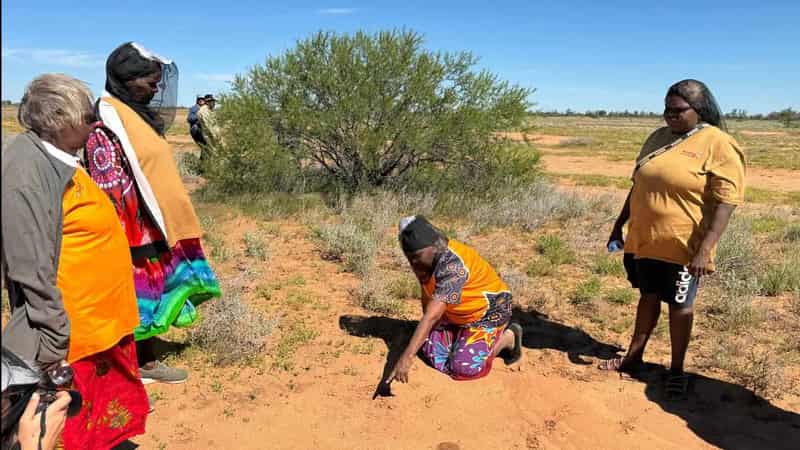
In the Tanami desert, Warlpiri ranger Madeleine Dixon is looking for footprints in the sand.
She’s hoping to find kangaroo, emu, goanna or other lizard tracks.
Ms Dixon is one of more than 100 Aboriginal rangers meeting at Tilmouth Well on the edge of the Tanami for the Central Land Council’s annual camp.
It’s a chance for rangers to catch up, compare notes and share knowledge.

This year the launch of a bilingual animal tracking training package, which combines traditional and modern teaching techniques, is one of the highlights.
The CLC developed Yitaki Maninjaku Ngurungka (reading the country) to ensure future rangers maintain ancient tracking knowledge and skills.
The training package features tailored learning activities supported by resources in Warlpiri and English.
Ms Dixon was taught how to track the old way - by her parents, aunty and grandmother, who still gives her advice on how to identify species of animals.
She is both student and teacher - passing on the knowledge that was given to her.
"We will teach the new rangers, we teach them how to hunt," Ms Dixon told AAP.
"And we teach other rangers from other communities who want to learn how to track."
Experienced trackers, known as kuyu pungu in Warlpiri, knowledge-holders, educators and language experts developed the bilingual training resources with the CLC’s Warlpiri and North Tanami rangers and other staff over the past three years.
The resources are ready to be adapted for other language groups across Australia’s deserts.
Jerry Jangala, an elder from Lajamanu and experienced tracker, was vital to the Yitaki Maninjaku Ngurungka project.
“We talk about asking questions [so learners] give the right answer [to] get the right words into their hearts and minds,” he said.
Elder Enid Gallagher has also been part of the project from the start.
"We have worked together to develop new ways to use old methods like recount and repetition," she said.
"We have seen that recycling these old ways is working.
"On a recent biodiversity survey the rangers responded really well and got really excited from learning in this way."
One of the reasons the old ways need to adapt is to take introduced pest species into account.
"We want to track our own native animals but the ferals are right on top of the native animals' footprints, the horses, cows and camels cover over the tracks," Ms Dixon explained.
During animal surveys in 2023, the rangers found populations of skinks, native hopping mice and other important species.
"We're going to be doing painting on a canvas, which shows the biodiversity monitoring we did in the Tanami last year," Ms Dixon said.
"And now we'll end up with all those animals that were seen in their locations on the canvas."

Rangers are learning how to operate vehicles for different terrains, practise catching poisonous snakes and take part in first aid and smartphone video training.
Their work includes control of introduced grasses, like couch and buffel, which has adapted so well to the Central Australian environment that it out-competes native plants, leading to habitat and food loss for indigenous species.
This year's camp also includes focus on the rangers’ health and wellbeing, with the Aboriginal Medical Services Alliance of the Northern Territory delivering a mental health and a culturally responsive trauma informed program, and a session on carbon farming.
But for Ms Dixon, both the work of being a ranger and the camp has one critical purpose.
"I just love being out on country, looking after the country," she said.
"And I want to teach my grandchildren too, in the future.
"I always take them out digging for bush potatoes - it's the right season now and it's green because we've had the biggest rain right over the Northern Territory, it's crazy."









